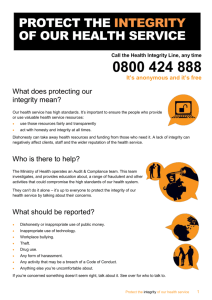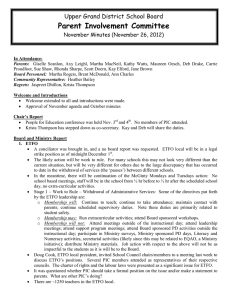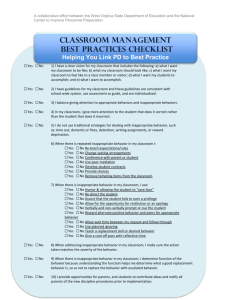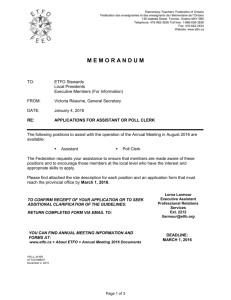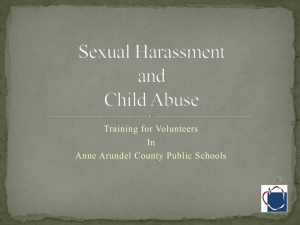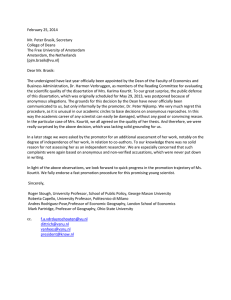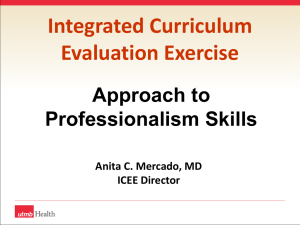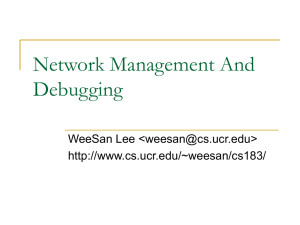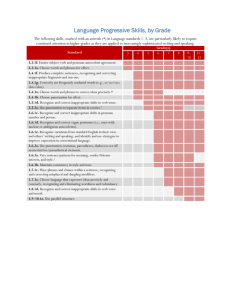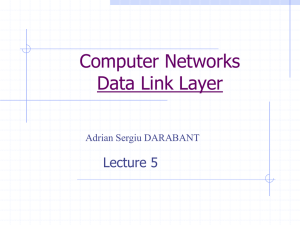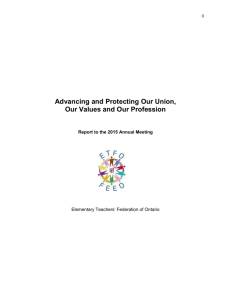Electronic Communications
advertisement
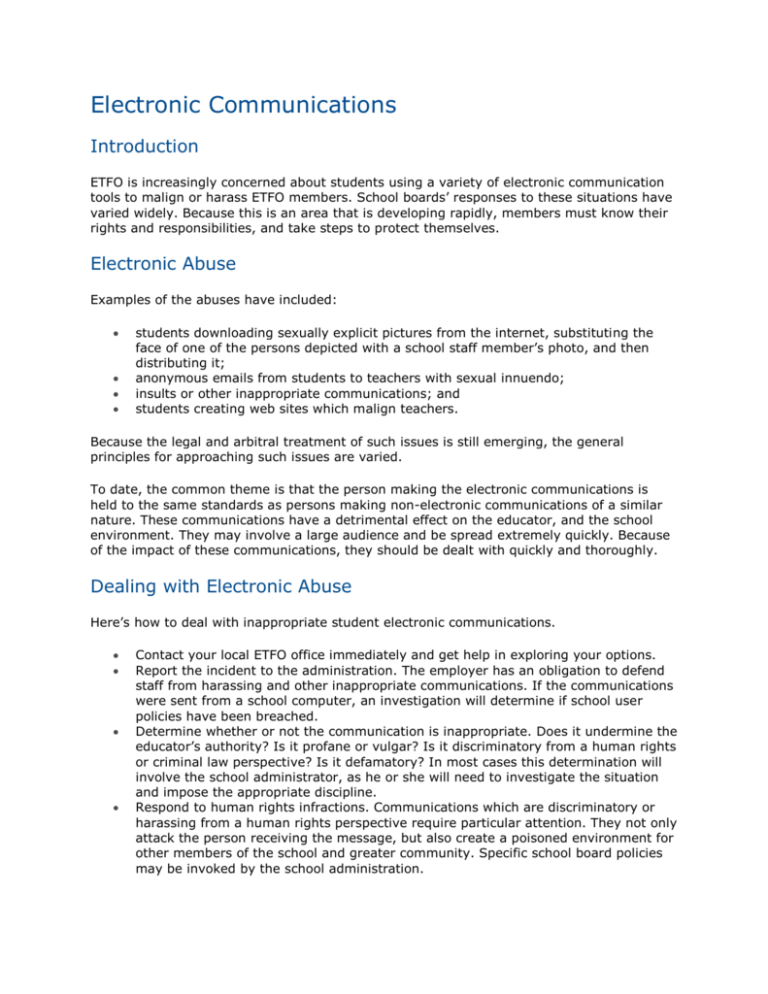
Electronic Communications Introduction ETFO is increasingly concerned about students using a variety of electronic communication tools to malign or harass ETFO members. School boards’ responses to these situations have varied widely. Because this is an area that is developing rapidly, members must know their rights and responsibilities, and take steps to protect themselves. Electronic Abuse Examples of the abuses have included: students downloading sexually explicit pictures from the internet, substituting the face of one of the persons depicted with a school staff member’s photo, and then distributing it; anonymous emails from students to teachers with sexual innuendo; insults or other inappropriate communications; and students creating web sites which malign teachers. Because the legal and arbitral treatment of such issues is still emerging, the general principles for approaching such issues are varied. To date, the common theme is that the person making the electronic communications is held to the same standards as persons making non-electronic communications of a similar nature. These communications have a detrimental effect on the educator, and the school environment. They may involve a large audience and be spread extremely quickly. Because of the impact of these communications, they should be dealt with quickly and thoroughly. Dealing with Electronic Abuse Here’s how to deal with inappropriate student electronic communications. Contact your local ETFO office immediately and get help in exploring your options. Report the incident to the administration. The employer has an obligation to defend staff from harassing and other inappropriate communications. If the communications were sent from a school computer, an investigation will determine if school user policies have been breached. Determine whether or not the communication is inappropriate. Does it undermine the educator’s authority? Is it profane or vulgar? Is it discriminatory from a human rights or criminal law perspective? Is it defamatory? In most cases this determination will involve the school administrator, as he or she will need to investigate the situation and impose the appropriate discipline. Respond to human rights infractions. Communications which are discriminatory or harassing from a human rights perspective require particular attention. They not only attack the person receiving the message, but also create a poisoned environment for other members of the school and greater community. Specific school board policies may be invoked by the school administration. Involve the police. Some inappropriate communications may involve crimes under the Criminal Code. In these situations, it is appropriate to have the school administration contact the police. If the communications appear to be anonymous, the authorities may be able to identify the perpetrator. Impose student discipline. The discipline should be appropriate to the severity of the communications; in most cases to date the students are suspended from 10 – 20 days. ETFO May Grieve Board Action/Inaction If the school board fails to act appropriately, the federation may consider filing a grievance on behalf of the member. The grievance would not focus on the communication but on the board’s response. For example, provisions in collective agreements involving human rights protections or provisions for harassment-free workplaces may be considered. In each case, the specific provisions of the individual collective agreement would have to be considered. Your local president would make this determination, in conjunction with ETFO collective bargaining staff. Exercise Professional Caution Communications that may appear to be anonymous may actually originate from someone within the school community. For this reason in particular, members should resist inclinations to respond in kind when they receive such anonymous electronic communications. Unprofessional responses may invite disciplinary action by the Ontario College of Teachers or the school board. Educators should be as careful with electronic communications as they would be with any written communications. There have been cases where communications between educators and students were made public, leading to extreme professional difficulties. Anything put in writing may be shared with a wider audience; this is even truer with e-mail. The need for appropriate professional caution in this area is considerable. Members are advised to consult Professional Relations staff in Protective Services at 416-962-3836 or 1-888-838-3836 for additional advice.

